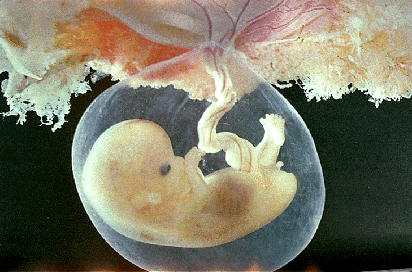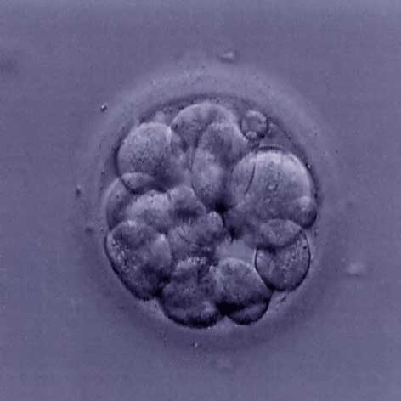One of the most controversial areas in tissue engineering is the area of embryonic stem cells. Embryonic stem cells (ESCs) are one of the most promising treatments and are derived from early stage blastocysts and are pluripotent, meaning they can transform, or differentiate, into any other type of cell. ESCs are also able to reproduce indefinitely, which makes them an extremely useful way to potentially regrow damaged cartilage.  |
 Despite their promise, these stem cells are strongly opposed by many groups. ESCs must be taken from a human embryo in a process which destroys the embryo, thus making the process unacceptable to many religious groups. They claim that the embryo has status as a human being, and as such destroying it would be immoral. |
||
Other groups do not believe that an embryo has that status, and assert that destroying an embryo is not unethical. Stem cell supporters also argue that in vitro fertilization generates many unused embryos which could be used for research. These embryos would be destroyed anyway; it’s a waste not to use them for research. The political reaction to these controversies has been mixed. In the U.S. in 1973, when abortion was legalized in Roe vs. Wade, the federal government banned the use of federal funds for research on human embryos. Since then, the government has allowed limited use of stem cells, but not the creation of new stem cell lines. Recently, President Obama has signed more legislature in support of embryonic stem cells, but the fight to fully legalize them continues. |
|||